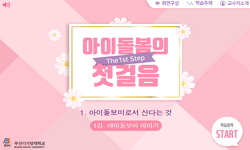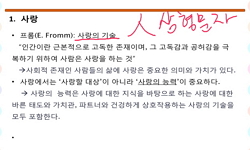1. 본 연구의 목적은 초등학생들을 대상으로 하는 자기성장 프로그램의 집단적 적용이 초등학생의 자아존중감과 사회성 발달에 어떤 영향을 주는가를 알아보는 것이다. 이 목적 달성을 위...
http://chineseinput.net/에서 pinyin(병음)방식으로 중국어를 변환할 수 있습니다.
변환된 중국어를 복사하여 사용하시면 됩니다.
- 中文 을 입력하시려면 zhongwen을 입력하시고 space를누르시면됩니다.
- 北京 을 입력하시려면 beijing을 입력하시고 space를 누르시면 됩니다.
자기성장 집단프로그램이 초등학생의 자아존중감과 사회성발달에 미치는 효과 = (A) Study on the effects of a self-growth group program on development of elementary school students' self-esteem and sociability
한글로보기https://www.riss.kr/link?id=T9993840
- 저자
-
발행사항
서울: 동국대학교, 2004
-
학위논문사항
학위논문(석사) -- 동국대학교 교육대학원 , 상담심리전공 , 2004
-
발행연도
2004
-
작성언어
한국어
- 주제어
-
KDC
375.2 판사항(4)
-
발행국(도시)
서울
-
형태사항
v, 88 p.: 삽도,챠트; 26 cm.
-
일반주기명
권말부록:자기성장 집단 프로그램의 실제,자아존중감 척도,사회성 척도 수록
지도교수:곽준규
참고문헌:p.57-60 - 소장기관
-
0
상세조회 -
0
다운로드
부가정보
국문 초록 (Abstract)
이 목적 달성을 위하여 다음과 같은 연구문제를 설정하였다.
첫째, 자기성장 집단 프로그램은 초등학생의 자아존중감 증진에 효과가 있는가?
둘째, 자기성장 프로그램은 초등학생의 사회성 발달에 효과가 있는가?
셋째, 자기성장 프로그램의 효과는 성별 간에 차이가 있는가?
이러한 문제를 해결하기 위하여 서울 용산구에 위치한 서울S초등학교 4학년 어린이 78명 중 학부모의 동의를 받고 훈련에 참가하기를 희망하는 학생들 24명을 선발하여 실험집단과 통제집단에 각각 12명씩 배정하였다.
실험집단에게 실시한 프로그램은 이형득의 '자기성장 프로그램' 을 바탕으로 하여 본 연구자가 초등학교 4학년 학생의 관심과 수준에 알맞게 재구성한 자기성장 프로그램을 8회에 걸쳐 집단 적용하였다.
2004년 9월 8일 10월 8일 사이에 주 2회 80분씩 총 8회를 실시하였으며, 집단 적용 효과를 검증하기 위한 도구는 최보가와 전귀연(1993)이 개발한 아동용 자아존중감 척도 검사와 조성연(1996)의 사회성 검사를 사용하였다.
실험처치 이전에 실험집단과 통제집단의 동질성을 확인하고자 사전검사를 실시하였고, 실험의 효과를 검증하고자 사후검사를 실시하였으며 자아존중감 척도 검사와 사회성 검사 자료는 t-검증(t-test)으로 처리하였다.
본 연구에서 얻어진 주요 결과는 다음과 같다.
첫째, 자기성장 프로그램을 집단 적용한 결과 자아존중감 점수가 유의미하게 향상되었다.(p<.01)
둘째, 자기성장 프로그램을 집단 적용한 결과 사회성 점수가 유의미하게 향상되었다.(p<.01)
셋째, 자기성장 프로그램이 자아존중감과 사회성 향상에 미치는 효과는 성별에 따른 차이는 없는 것으로 나타났다.
1. 본 연구의 목적은 초등학생들을 대상으로 하는 자기성장 프로그램의 집단적 적용이 초등학생의 자아존중감과 사회성 발달에 어떤 영향을 주는가를 알아보는 것이다.
이 목적 달성을 위하여 다음과 같은 연구문제를 설정하였다.
첫째, 자기성장 집단 프로그램은 초등학생의 자아존중감 증진에 효과가 있는가?
둘째, 자기성장 프로그램은 초등학생의 사회성 발달에 효과가 있는가?
셋째, 자기성장 프로그램의 효과는 성별 간에 차이가 있는가?
이러한 문제를 해결하기 위하여 서울 용산구에 위치한 서울S초등학교 4학년 어린이 78명 중 학부모의 동의를 받고 훈련에 참가하기를 희망하는 학생들 24명을 선발하여 실험집단과 통제집단에 각각 12명씩 배정하였다.
실험집단에게 실시한 프로그램은 이형득의 '자기성장 프로그램' 을 바탕으로 하여 본 연구자가 초등학교 4학년 학생의 관심과 수준에 알맞게 재구성한 자기성장 프로그램을 8회에 걸쳐 집단 적용하였다.
2004년 9월 8일 10월 8일 사이에 주 2회 80분씩 총 8회를 실시하였으며, 집단 적용 효과를 검증하기 위한 도구는 최보가와 전귀연(1993)이 개발한 아동용 자아존중감 척도 검사와 조성연(1996)의 사회성 검사를 사용하였다.
실험처치 이전에 실험집단과 통제집단의 동질성을 확인하고자 사전검사를 실시하였고, 실험의 효과를 검증하고자 사후검사를 실시하였으며 자아존중감 척도 검사와 사회성 검사 자료는 t-검증(t-test)으로 처리하였다.
본 연구에서 얻어진 주요 결과는 다음과 같다.
첫째, 자기성장 프로그램을 집단 적용한 결과 자아존중감 점수가 유의미하게 향상되었다.(p<.01)
둘째, 자기성장 프로그램을 집단 적용한 결과 사회성 점수가 유의미하게 향상되었다.(p<.01)
셋째, 자기성장 프로그램이 자아존중감과 사회성 향상에 미치는 효과는 성별에 따른 차이는 없는 것으로 나타났다.
다국어 초록 (Multilingual Abstract)
1) Are the self-growth group program effective to enhance elementary school students' self-esteem?
2) Are the self-growth group program effective to develop the elementary school students' sociability ?
3) Are there any differences of effectiveness of the self-growth group program in relation to subjects' sexes?
In order to find the answers to the above questions, the researcher sampled 78 children enrolled in the 4th grade of 'S' Elementary School at Yongsang-gu, Seoul, and then, selected 24 students finally upon agreement from their parents. They were divided equally into test and control groups.
Lee Deuk-hyong's 'Self-Growth Program' was adapted by the researcher to conform to elementary 4th graders' interest and level and then, applied to the test group through 8 rounds.
The test group was subject to the program twice every week from September 8 through October 9, 2003. each of the 8 rounds lasted 80 minutes. In order to test the effects of the program, the researcher used the self-respect scale developed by Choi Bo-ga and Jeon Gui-yeon (1993) and the sociability scale developed by Jo Seong-yeon(1996).
Both test and control groups were pre-tested to check if they were homogeneous, and both of them were post-tested to verify the effects of the program. The data about self-respect and sociability were T-tested.
The results of this study can be summarized as follows;
First, as a result of applying the self-growth program to the test group, their self-respect was significantly improved. (p<.01)
Second, as a result of applying the self-growth program to the test group, their sociability was significantly improved. (p<.01)
Third, as a result of applying the self-growth program to the test group, their sociability was significantly improved in all sub-areas of sociability.
Fourth, there was found no difference between sexes of the effects the self-growth program had on self-respect and sociability.
The purpose of this study was to determine the effects of a self-growth program on development of elementary 4th graders' self-esteem and sociability. The following questions were developed; 1) Are the self-growth group program effective to enhance e...
The purpose of this study was to determine the effects of a self-growth program on development of elementary 4th graders' self-esteem and sociability. The following questions were developed;
1) Are the self-growth group program effective to enhance elementary school students' self-esteem?
2) Are the self-growth group program effective to develop the elementary school students' sociability ?
3) Are there any differences of effectiveness of the self-growth group program in relation to subjects' sexes?
In order to find the answers to the above questions, the researcher sampled 78 children enrolled in the 4th grade of 'S' Elementary School at Yongsang-gu, Seoul, and then, selected 24 students finally upon agreement from their parents. They were divided equally into test and control groups.
Lee Deuk-hyong's 'Self-Growth Program' was adapted by the researcher to conform to elementary 4th graders' interest and level and then, applied to the test group through 8 rounds.
The test group was subject to the program twice every week from September 8 through October 9, 2003. each of the 8 rounds lasted 80 minutes. In order to test the effects of the program, the researcher used the self-respect scale developed by Choi Bo-ga and Jeon Gui-yeon (1993) and the sociability scale developed by Jo Seong-yeon(1996).
Both test and control groups were pre-tested to check if they were homogeneous, and both of them were post-tested to verify the effects of the program. The data about self-respect and sociability were T-tested.
The results of this study can be summarized as follows;
First, as a result of applying the self-growth program to the test group, their self-respect was significantly improved. (p<.01)
Second, as a result of applying the self-growth program to the test group, their sociability was significantly improved. (p<.01)
Third, as a result of applying the self-growth program to the test group, their sociability was significantly improved in all sub-areas of sociability.
Fourth, there was found no difference between sexes of the effects the self-growth program had on self-respect and sociability.
목차 (Table of Contents)
- 목차 = ⅲ
- Ⅰ. 서론 = 1
- 1. 연구의 필요성과 목적 = 1
- 2. 연구문제 = 6
- Ⅱ. 이론적 배경 = 7
- 목차 = ⅲ
- Ⅰ. 서론 = 1
- 1. 연구의 필요성과 목적 = 1
- 2. 연구문제 = 6
- Ⅱ. 이론적 배경 = 7
- 1. 자아존중감 = 7
- 2. 자기성장 프로그램 = 12
- 3. 집단상담 = 17
- 4. 사회성 발달 = 18
- 5. 선행연구 고찰 = 21
- Ⅲ. 연구 방법 = 27
- 1. 연구 대상 및 표집 = 27
- 2. 연구 설계 = 28
- 3. 자료 수집 = 29
- 4. 실험 처치 = 33
- 5. 자료 처리 = 36
- Ⅳ. 결과 및 해석 = 37
- 1. 자기성장 프로그램이 자아존중감에 미치는 효과 = 37
- 2. 자기성장 프로그램이 사회성 발달에 미치는 효과 = 38
- 3. 자아존중감과 사회성의 하위변인에 미치는 효과 비교 = 40
- 4. 자기성장 프로그램 의 성별에 따른 효과 비교 = 47
- Ⅴ. 요약 및 논의 = 50
- 1. 요약 = 50
- 2. 결론 및 논의 = 53
- 참고문헌 = 57
- 부록 Ⅰ 자기성장 집단 프로그램의 실제 = 61
- 부록 Ⅱ 자아존중감 척도 = 83
- 부록 Ⅲ 사회성 척도 = 85
- ABSTRACT = 87










